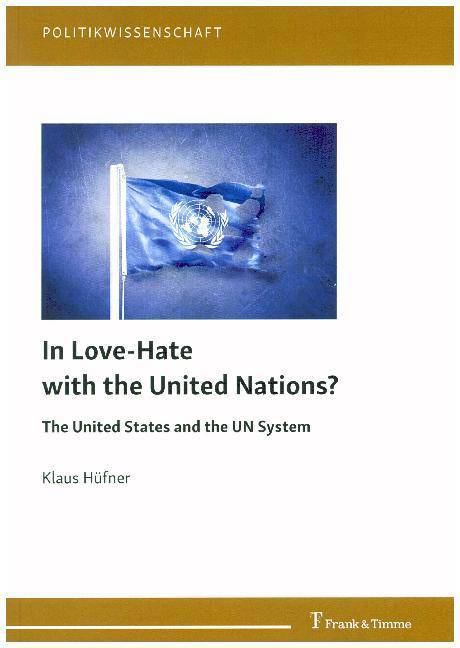
Door een staking bij bpost kan je online bestelling op dit moment iets langer onderweg zijn dan voorzien. Dringend iets nodig? Onze winkels ontvangen jou met open armen!
- Afhalen na 1 uur in een winkel met voorraad
- Gratis thuislevering in België vanaf € 30
- Ruim aanbod met 7 miljoen producten
Door een staking bij bpost kan je online bestelling op dit moment iets langer onderweg zijn dan voorzien. Dringend iets nodig? Onze winkels ontvangen jou met open armen!
- Afhalen na 1 uur in een winkel met voorraad
- Gratis thuislevering in België vanaf € 30
- Ruim aanbod met 7 miljoen producten
Zoeken
€ 29,45
+ 58 punten
Omschrijving
On the one hand, the United States is "Number One" as contributor to the UN regular budget as well as to the budgets of the UN peacekeeping operations. On the other hand, the United States is also the largest debtor caused by either partially or fully deferred payments. This leads to a vicious circle: Large amounts of unpaid assessed contributions cause tremendous administrative difficulties for the programme budgeting activities of the UN. Also, many UN Specialized Agencies suffer under the US financial behaviour. The United States is in favour of shifting from assessed to voluntary contributions. Since most of them are restricted to specific projects or countries, this would imply that the US as the most important donor of voluntary contributions would also become the dominant decision-maker in the UN. The author analyses the funding behaviour of the United States over the last decades and shows that financial leverages are an inherent policy tool of the US vis-à-vis the UN.
Specificaties
Betrokkenen
- Auteur(s):
- Uitgeverij:
Inhoud
- Aantal bladzijden:
- 144
- Taal:
- Engels, Duits
- Reeks:
- Reeksnummer:
- nr. 12
Eigenschappen
- Productcode (EAN):
- 9783732905447
- Uitvoering:
- Paperback
- Afmetingen:
- 172 mm x 213 mm
- Gewicht:
- 204 g

Alleen bij Standaard Boekhandel
+ 58 punten op je klantenkaart van Standaard Boekhandel
Beoordelingen
We publiceren alleen reviews die voldoen aan de voorwaarden voor reviews. Bekijk onze voorwaarden voor reviews.











